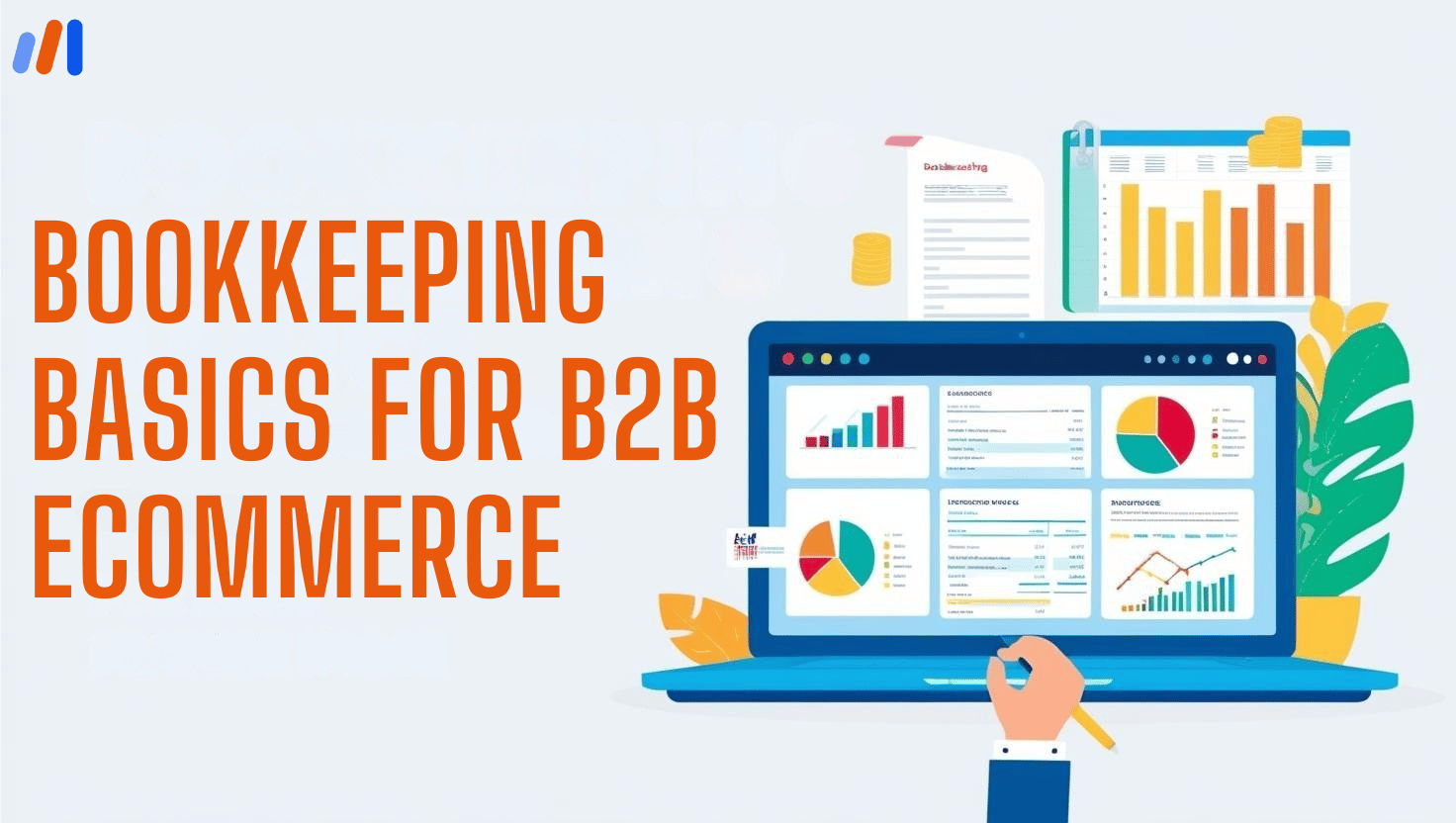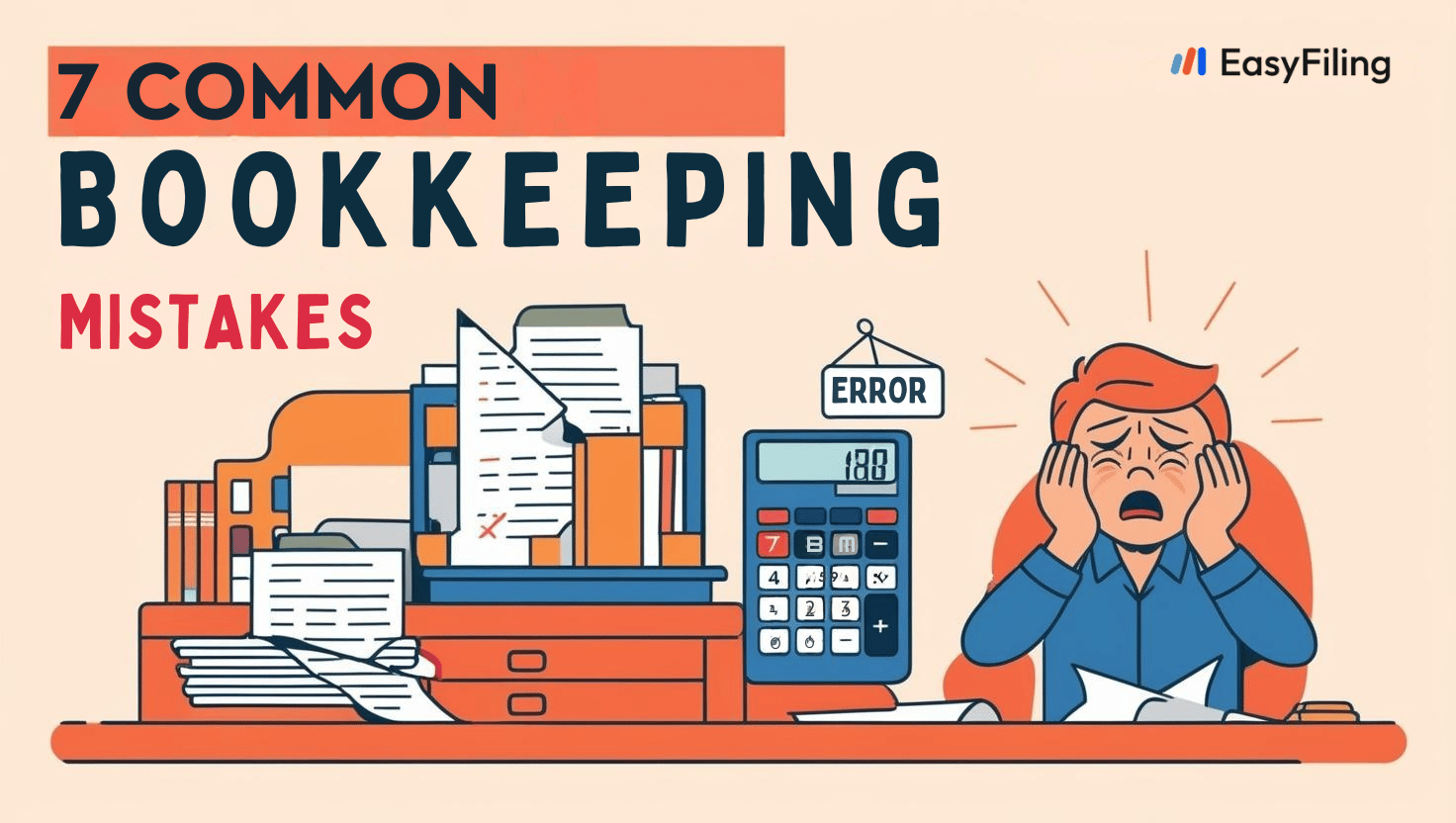Bookkeeping is among the most important aspects of business that is often neglected. In B2B (business-to-business) e-commerce, managing a company’s e-commerce operations requires an immeasurable amount of attention and detail, making it just as vital as any other aspect of business.
Let us remind you that precise record-keeping greatly defines your level of success. It is these tactics that enable you to maintain a clear insight into profitability, tax debts, and growth markers that prove helpful down the line.
Today’s article will discuss some bookkeeping basics for B2B e-commerce while also diving into how to set up a sound bookkeeping system that will earn your business profitability in the long run.
Why Bookkeeping Matters for B2B E-commerce Businesses
Usually, B2B (business-to-business) e-commerce dealings feature sophisticated financial transactions that comprise significantly larger sums of money than those in B2C (business-to-customer) e-commerce. Free from the shackles of term debts, a B2B model allows international dealings with large invoice payments.
B2B businesses need to keep bookkeeping on top of their priority lists to ensure compliance, cash flow monitoring, and the overall financial health of the company.
Points outlining the need to adopt good bookkeeping practices are as follows:
Tax compliance: Accurate record keeping of expenses, sales, and profit margins gives you the peace of mind of never having to decline tax obligations.
Financial Insights: Proper bookkeeping enables easy cost reductions while erasing the financial blunders of doubling down on less profitable products or services. A business’s revenue can also be analyzed in depth.
Cash Flow Management: Monitor cash provenientes from clients, unpaid invoices, and other business cash on hand.
Growth and Investment: New investors or lenders would like to have information that reflects your business’s financial performance to assist them in making a decision.
Essential Bookkeeping Tasks for B2B E-commerce
Several things need to be kept in mind with bookkeeping when running a B2B e-commerce business.
a. Invoicing and Revenue Tracking
Invoices are very crucial during business transactions. And most importantly, invoices should be generated promptly as selling documentation to track sales as well.
Make sure to note the buyer’s name and other important information, a detailed list of all products or services purchased, and also the payment methods available. Also, make sure to track both the paid and unpaid invoices so that no payments are forgotten.
Tip: You can use accounting software or tools for invoicing to automate the generation of invoices and to remind you when payment due dates arrive and have passed.
b. Expense Tracking
Remember, it’s also very crucial to track your expenses. Your expenses should be grouped according to operational expenses, supporting expenditures, and other general business expenses.
Doing so will assist in identifying the spending patterns among the different types of expenses and help to determine where costs can be cut or more efficient.
Tip: Accounting software solutions can save you time by letting you group expenses automatically while keeping a supporting document for reference.
c. Account Receivables and Payables
In B2B e-commerce, there may be some clients who do not settle their invoices on time (e.g., 30, 60, or even 90 days). On the other hand, some of your suppliers may expect payment more immediately.
Tracking both receivables (the money owed by clients) and payables (the money owed to intenders) is critical for maintaining cash flow.
Tip: You can keep a record of payments that are yet to be received and bills that are overdue using aging reports of accounts receivable as well as payable.
d. Inventory Management
E-commerce companies dealing in physical goods have to manage their inventory astutely. Monitoring levels of inventory, purchase orders, and stock in hand ensures that you do not lose good sales because of stock availability.
It also relates to the cost of goods sold (COGS) that affects profit margins to the bottom line.
Tip: To monitor product stock levels more efficiently, e-commerce platforms must be used with built-in features for inventory control.
e. Bank Reconciliation
Bank statements are reconciled to ensure that the balances shown in the bank account agree with records of accounting. This helps to ensure that the deposits and withdrawal transactions are properly captured in the bookkeeping records.
Doing this should help catch issues such as non-payments and incorrect values on transactions quickly.
Tip: To keep things simple, set a schedule to balance your book accounts weekly or monthly.
Choosing the Right Bookkeeping Tools
You have many tools and software options that can assist with bookkeeping functions. Consider using basic spreadsheets or more synoptic accounting programs for your B2B ecommerce business depending on its complexity and scope. Recommended tools include:
EasyBooks: Suitable for small and medium-sized firms. Provide invoicing, expense monitoring, and tax filings.
Xero: An online accounting services provider offering invoicing, expenses, payroll, and accounting services.
FreshBooks: A small business or freelance tool that helps with invoicing and tracking of hours worked.
Zoho Books: A user-friendly accounting solution that lets clients manage invoices, payments, and financial statements.
Hiring a Bookkeeper or Accountant
As the volume of your e-commerce business grows, it may be prudent for you to hire a professional bookkeeper or accountant, particularly if your financial affairs are too difficult to manage.
These professionals will ensure that your financial records are updated, and precise and meet the regulations of your specific industry.
Tip: Make sure whoever you hire has a proper background in B2B e-commerce to ensure relevancy.
Best Practices for B2B E-commerce Bookkeeping
To make sure your business retains its growth and success, you might want to consider these exceptional bookkeeping practices:
Stay Organized: For ease of tax claims and monetary reports, you can choose not to destroy financial records, receipts, and invoices.
Automate Where Possible: To prevent human error and save time, you can employ an accounting tool that allows automation of invoicing, expense reporting, and tax filing.
Monitor Key Metrics: To efficiently manage profit, keep track of your gross margin, operating expenses, and net income value regularly.
Plan for Taxes: Set money aside for tax payments during the year, instead of waiting until the tax deadline and being stressed. A tax professional will ensure that you’re paying and receiving the correct amount, along with any other deductions you’re entitled to from your taxes.
How EasyFiling Can Help in B2B E-commerce Bookkeeping
EasyFiling features e-commerce bookkeeping services which will make financial management of your B2B ecommerce simpler. This is how we can aid:
LLC Formation & Tax Compliance
We will help with the formation of the LLC and ensure that your business taxes are managed, to aid with efficient bookkeeping from the onset.
Cloud-Based Accounting Integration
We connect the financials of your e-commerce site to the cloud accounting so that there is automatic invoicing, spending, and reporting which will make it easier and more accurate.
Financial Reporting & Sales Tax Guidance
EasyFiling gives written annual reports and backs them up with the difficult sales tax regulations for various states, cities, locals, and the federal government.
Ongoing Bookkeeping Support
From the beginning or later, EasyFiling provides ongoing bookkeeping services so that records are correct, properly kept, and reliable.
Scalable Solutions for Growth
With the growth of your business, we have more bookkeeping propositions to make, which will provide the different phases of your business with appropriate support.
Conclusion
In conclusion, tracking revenues, expenses, invoices, stock, and tax obligations through proper bookkeeping is important for B2B e-commerce businesses. Failure to do so could lead to non-compliance and loss of profitability.
Additionally, choosing whether to hire a professional or do it in-house is up to you. However, knowing how to organize and maintain consistency is what is important.
You now have more time to shift your focus toward increasing your B2B e-commerce business instead of worrying about bookkeeping basics.
Frequently Asked Questions (FAQs)
1. Why is bookkeeping important for my B2B e-commerce business?
I would say bookkeeping is very important to pay attention to the income, expenses, and taxes of your business because it plays an important role. All these factors are crucial to understanding cash flow, profitability, and financial health, all of which allow you to strategize major business decisions.
2. How can EasyFiling help with tax compliance for my eCommerce business?
Our team at EasyFiling helps businesses with compliance worries for state, local, and federal taxes. This includes sales tax as well. From our end, we continuously ensure that tax filings are accurate, reducing the risk of undue penalties.
3. Can EasyFiling integrate with my e-commerce platform?
Yes, definitely! We make the integration easy with our cloud-based accounting software and your e-commerce platform. We automate invoicing, expenses, and reporting so that your bookkeeping is seamless and effortless.
4. What reports does EasyFiling provide?
EasyFiling provides a range of comprehensive reports such as profit and loss accounts, cash flow reports, and balance sheets. These reports help you determine your business’s financial standing, which aids in creating more advanced business decisions.
5. Does EasyFiling cater to my expanding B2B e-commerce business?
Of course! With the growth of your business, EasyFiling will provide you with more customizable bookkeeping solutions so that the financial management is as seamless as possible.
File Your LLC Today
25$ off with a coupon
Lock in EasyFiling's transparent rates and get lifetime compliance support at no extra cost.
Get Started Now








